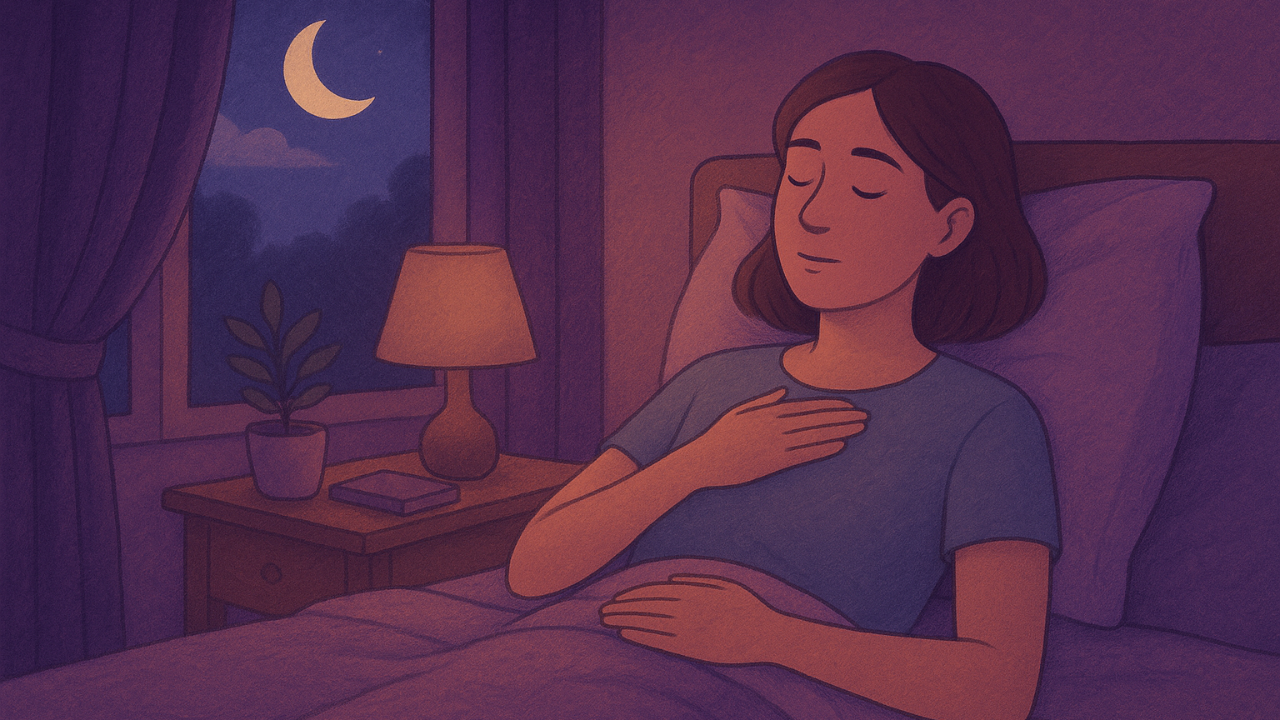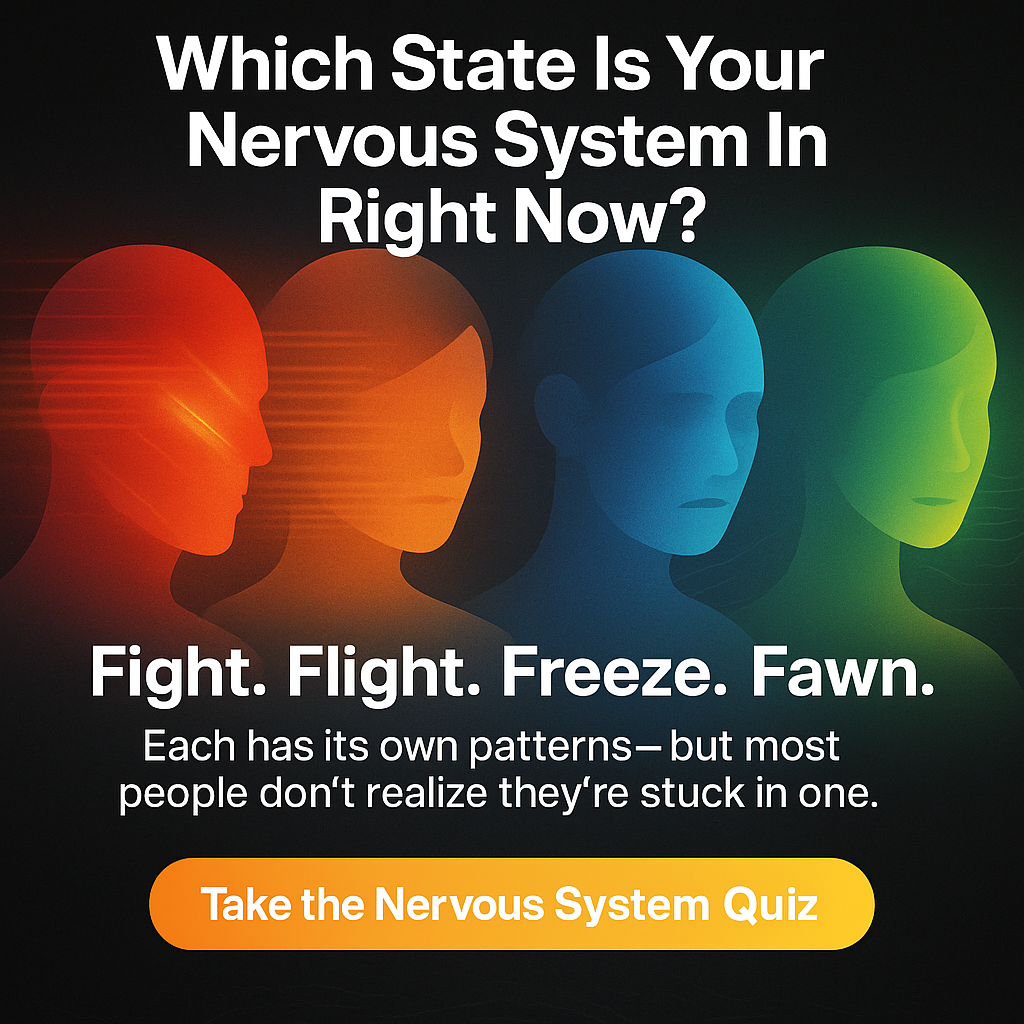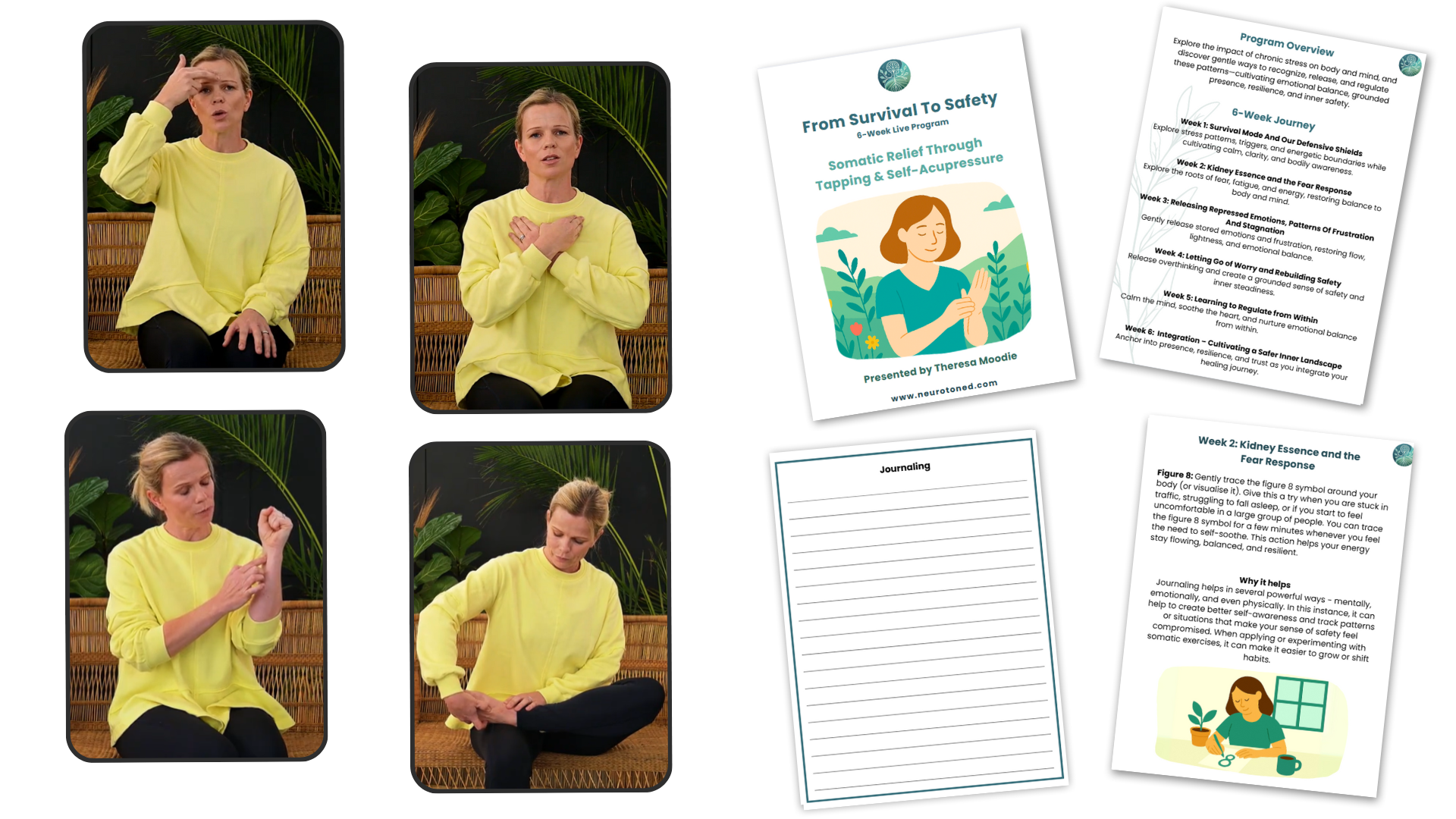
Stop 3 AM Wakeups With a Gentle Nervous System Plan
If you keep waking around 3 AM with a racing heart, tight chest, or the sense that something is “wrong,” there is nothing defective about you. Many people living with chronic stress, stored survival energy, or long-term overwhelm experience the same pattern.
If you want to understand what state your system gets stuck in most often, try the Stress Loop Quiz.
Your body is not failing. It is protecting you in the only way it knows.
Below is a calm, kind guide to why 3 AM wakeups happen and how to gently support your system back into rest.
Featured Snippet-Style Answer
Many 3 AM wakeups happen because the nervous system stays half-alert instead of fully shifting into deep rest. This can come from blood sugar dips, chronic stress, stored activation, or sensitive nighttime threat detection. To reduce these wakeups, build cues of safety into your evenings, support steady blood sugar, and create a simple grounding practice for the moment you wake. Warm pressure, slow breathing ratios, and small somatic movements often help the body return to sleep more than force or effort.
Why 3 AM Wakeups Happen
Your body never fully powers down
If your day requires constant vigilance, your nights may follow the same pattern.
You might relate to the article Why do I always feel ready to jump out of my skin for no reason? which explains this high-alert baseline in gentle language.
To help set your body up for rest after work, After-Work Downshift Routine for Your Nervous System may feel supportive.
Blood sugar dips can create a cortisol spike
Your system may pull you awake if glucose becomes too low.
This pattern is explained more deeply in Blood Sugar Swings and the Nervous System.
Stored survival energy rises at night
When the room is quiet and the external world goes still, your internal world becomes louder. Many people only notice stress activation once nothing else is competing for attention.
Nighttime creates space for unresolved tension
If your days are full of coping, your nights may become the place where unprocessed sensations surface.
Gentle somatic ideas in Pendulation: A Simple Somatic Exercise to Calm Your Nervous System can help explain why.
A Gentle Plan to Reduce 3 AM Wakeups
Build safety into your evenings
1. A slow warm-down instead of a quick wind-down
Light stretching, soft humming, or a small orienting practice helps the body shift out of task mode.
If humming helps you settle, you may enjoy How Humming and Gargling Calm Your Nervous System.
2. Eat a small, steadying snack before bed
Something with gentle protein and calming carbs may help.
3. Reduce interpretation at night
Two hours before bed, shift to simple tasks that carry no pressure or decisions.
What to do during a 3 AM wakeup
Instead of trying to “force” yourself back to sleep, focus on creating cues of safety. Sleep follows safety.
1. Warm pressure cue
Place one hand on your chest and one on your belly. This is a grounding way of saying, “I’m here. Nothing is demanded of me.”
2. Try a calmer breath pattern
If standard deep breathing makes you anxious, you are not alone. Many people find relief in gentler practices explained in Why Deep Breathing Makes Me More Anxious, And What To Do Instead.
3. Use a grounding phrase
“Nothing is required of me right now. I am allowed to rest.”
4. Micro-movements
Soft shoulder rolls or gentle toe wiggles help release tension without fully waking the system.
A 7-Day Micro-Plan to Reduce 3 AM Wakeups
Day 1: Three minutes of quiet hums or slow exhale breaths.
Day 2: Balanced bedtime snack.
Day 3: Go to bed fifteen minutes earlier.
Day 4: Six slow breaths before turning off the light.
Day 5: Dim lighting or a warm lamp if full darkness feels too vulnerable.
Day 6: Practice warm pressure when the wakeup happens.
Day 7: Repeat your grounding phrase before sleep.
Common Sticking Points
“My heart pounds at 3 AM.”
This often comes from a sudden adrenaline release. A slow exhale may help, and this pattern is explained further in Why Heart Palpitations Feel Worse at Night, A Nervous System View.
“Breathing exercises make me feel more anxious.”
Try shorter inhales and longer exhales instead of deep breaths.
“I wake up frozen, not anxious.”
Some people wake numb or disconnected. You may find support in Why Your Body Goes Numb During Stress.
“I fall asleep quickly but can’t stay asleep.”
Evening overwhelm may still be living in your system. Evening grounding, gentle movement, and blood-sugar steadiness often help.
FAQs
1. Why does my anxiety spike at 3 AM?
Your body’s stress hormones naturally rise around 2 to 4 AM. If your system is already sensitive, you may feel this shift more intensely.
2. Should I get out of bed when I wake up?
You don’t have to. Many people find gentle grounding or warm pressure more helpful than fully waking themselves.
3. Can breathing exercises help me fall back asleep?
Yes. Slow, extended exhales may help calm your system without effort or force.
4. Is this a trauma response?
Not necessarily. But people with trauma history often have lighter sleep cycles and may wake more easily.
5. How long until this improves?
Small changes often help within a week. Every body is different. Start tiny.
6. When should I talk with a professional?
If wakeups feel overwhelming, frightening, or paired with other concerning symptoms, consider reaching out for personalized support.
If you want to understand what state your system gets stuck in most often, try the Stress Loop Quiz.
More Gentle Reads
These may deepen your nighttime support:
Disclaimer: This article is educational and not medical advice. If you have health concerns, consider speaking with a qualified professional.
Discover Your Vagal Tone
Find out how dysregulated your nervous system is and get your personalized roadmap to feeling calm, energized, and in control


